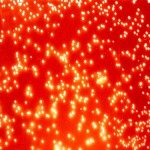Lien vers Pubmed [PMID] – 31478826
J. Med. Microbiol. 2019 Sep;
Diphtheria is caused by toxigenic strains of , and . For diagnostic purposes, species identification and detection of toxigenic strains (diphtheria toxin ()positive strains) is typically performed using end-point PCR. A faster quadruplex real-time PCR (qPCR) was recently developed (De Zoysa . 2016;65(12):1521-1527). We aimed to improve the quadruplex method by adding a 16S rRNA gene target as an internal processing control, providing confirmation of the presence of bacterial DNA in the assays, thus avoiding the possibility of false-negative reporting. Universal 16S rRNA gene primers and a probe were defined. The novel method was tested using 36 bacterial isolates and 17 clinical samples. Experimental robustness to temperature and reagent concentration variations was assessed. The method allows detection of the gene and distinguishing (including the newly described species ) from and . Complete diagnostic specificity, sensitivity and experimental robustness were demonstrated. The lower limit of detection for , and targets was 1.86 genome copies per 5 µl reaction volume. The method was successfully used on two distinct qPCR technologies (LightCycler 480, Roche Diagnostics and Rotor-Gene Q, Qiagen) and in two laboratories (Institut Pasteur, Paris, France and Public Health England – National Infection Service, London, UK). This work describes validation of the improved qPCR quadruplex method and supports its implementation for the biological diagnosis of diphtheria.




